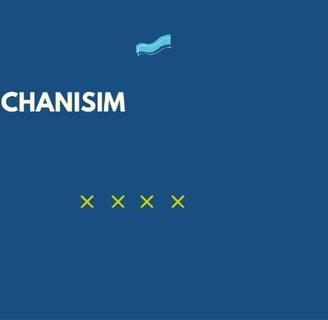The Reverse Charge Mechanism (RCM) is a concept in the Goods and Services Tax (GST) framework where the liability to pay tax is shifted from the supplier to the recipient of the goods or services. In a typical GST scenario, the supplier collects the tax from the recipient and remits it to the government. However, under the Reverse Charge Mechanism, the recipient becomes liable to pay the tax directly to the government.
Here's an explanation of the Reverse Charge Mechanism and instances where it is applicable:
Explanation of the Reverse Charge Mechanism:
1. Normal GST Scenario:
- In a regular scenario, the supplier of goods or services is responsible for collecting and remitting the GST to the government.
2. Reverse Charge Scenario:
- Under the Reverse Charge Mechanism, the liability is reversed. The recipient of the goods or services is required to pay the GST directly to the government, and the supplier does not collect the tax.
3. Applicability to Specific Goods and Services:
- The Reverse Charge Mechanism is not applicable to all transactions. It is typically applied to specific goods, services, or scenarios as notified by the government.
Instances Where Reverse Charge Mechanism Is Applicable:
1. Services from Unregistered Dealers:
- When a registered business avails services from an unregistered supplier, the recipient is liable to pay GST under the Reverse Charge Mechanism.
2. Certain Specified Goods and Services:
- The government may specify certain goods and services where the recipient is required to pay GST under the Reverse Charge Mechanism. This can include specific categories of supplies.
3. Import of Services:
- When a person located in India receives services from a foreign service provider, the recipient in India is required to pay GST under the Reverse Charge Mechanism.
4. Legal and Professional Services:
- Services provided by an advocate, arbitral tribunal, or an individual/firm of professionals are subject to Reverse Charge Mechanism when received by a business entity.
5. Director's Services to the Company:
- Services provided by a director of a company to the company itself are subject to Reverse Charge, except when the director is an employee of the company.
6. Goods Transport Agency (GTA) Services:
- Services provided by a Goods Transport Agency for the transportation of goods by road are subject to Reverse Charge when availed by specified persons like factories, societies, and co-operative societies.
7. E-commerce Operator Services:
- E-commerce operators are liable to pay GST on certain notified services provided through their platform. The liability under the Reverse Charge Mechanism falls on the e-commerce operator.
Key Points to Note:
- The recipient is required to calculate and pay the GST under the Reverse Charge Mechanism on such transactions.
- The recipient can claim Input Tax Credit (ITC) for the GST paid under the Reverse Charge Mechanism, which helps offset the tax liability.
- The Reverse Charge Mechanism is designed to bring more transparency and accountability, especially in cases where unregistered suppliers are involved.
It's important for businesses to stay updated on the specific goods and services covered under the Reverse Charge Mechanism, as the government may periodically revise the list of items subject to this mechanism. Regular compliance checks and seeking professional advice can help businesses navigate the complexities of the Reverse Charge Mechanism effectively.
- Explanation of the Reverse Charge Mechanism:
- The Reverse Charge Mechanism (RCM) shifts the responsibility of tax payment from the supplier to the recipient. In certain scenarios, the recipient is required to pay the GST directly to the government instead of the supplier.
- Instances Where It Is Applicable:
- Generally, RCM is applicable for specific goods and services or when dealing with unregistered suppliers. Common instances include services from a foreign supplier, certain specified goods, and services from unregistered dealers.


Contacts
Socials
Subscribe to our newsletter
+91 9743234568
